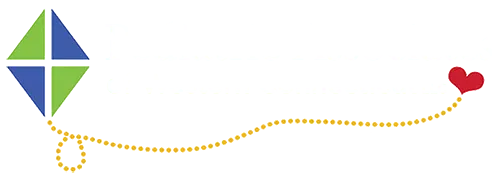In the rare event that an adult in your household develops monkeypox, share this information with your pediatrician and discuss what you can do to protect your child from infection. Here is information from the American Academy of Pediatrics about monkeypox.
Read More
-
Monkeypox: What You Need to Know
Category: safety_and_prevention
-
Pediatric Subspecialists
Category: pediatric_care
The American Academy of Pediatrics (AAP) has created a series of fact sheets about different surgical and medical pediatric subspecialists to whom your children may be referred.
Read More -
School Health Centers and Your Child
Category: school-aged_children
School health centers are becoming more and more common. Most handle medical emergencies, provide health screenings and refer students to doctors for health problems. A growing number of these centers also offer health services such as immunizations and physical examinations. Therapies for children with
Read More -
Should My Child Join a Clinical Trial?
Category: pediatric_care
Clinical trials are research studies. They are designed to learn more about ways to prevent, detect, or treat diseases. Clinical trials can also help people with chronic (long-term) illnesses find better ways to live each day with their illness.
Read More -
Sports Medicine Professionals (Care of the Young Athlete)
Category: pediatric_care
Athletes may deal with many different types of medical personnel after an injury. Athletes also may be referred by their primary care doctors to a sports medicine doctor or other sports medicine specialists for further evaluation and treatment.
Read More -
Treating Your Child's Pain: Medical Procedures
Category: common_illnesses_and_conditions
During certain medical procedures, your child may experience pain. These procedures can include having blood drawn, having breathing or feeding tubes put in, or lumbar punctures (spinal taps). Luckily, pain from these activities does not last long. Read on to find out how your child's pain from medical
Read More -
Treating Your Child's Pain: Surgery
Category: pediatric_care
Often after children have surgery, they have problems with pain. Luckily, there are ways to help ease this type of pain. Read on to find out how your child's pain from surgery can be managed.
Read More -
Treatment of Sports Injuries (Care of the Young Athlete)
Category: pediatric_care
There is often more than one way to effectively treat an injury. Treatment programs are always adjusted to meet the individual needs of the athlete and the unique requirements of the athlete's sport or activity.
Read More -
Use of Medicines in Sports (Care of the Young Athlete)
Category: pediatric_care
The primary use of medicines in sports is to treat pain and inflammation. Athletes may also take medicines to treat specific medical conditions, such as asthma or diabetes, or to treat common illnesses, like colds, congestion, cough, allergies,
Read More -
Visiting the Doctor—Autism Toolkit
Category: pediatric_care
Going to the doctor can be stressful for any child. For a child with autism spectrum disorder (ASD), there may be extra challenges because of sensory, communication, and other symptoms. Here are some tips to help make visiting the doctor easier.
Read More -
What is a Child Neurologist?
Category: pediatric_care
If your child has problems involving the nervous system, a Child Neurologist has the special training and experience to treat your child. Examples of such problems are seizures, delayed speech, weakness, or headaches.
Read More -
What is a Developmental-Behavioral Pediatrician?
Category: pediatric_care
If your child has a developmental, learning, or behavioral problem, a Developmental-Behavioral Pediatrician has the training and expertise to evaluate and care for your child. Developmental-behavioral pediatricians possess training and experience to consider, in their assessments and treatments, the
Read More -
What is a Pediatric Allergist/Immunologist?
Category: pediatric_care
If your child suffers from allergies or other problems with his immune system, a Pediatric Allergist/Immunologist has special skills to treat your child.
Read More -
What is a Pediatric Anesthesiologist?
Category: pediatric_care
If your child has an illness, injury, or disease that requires surgery, a Pediatric Anesthesiologist has the experience and qualifications to assist in the treatment and to help ensure a successful surgery for your child.
Read More -
What is a Pediatric Dentist?
Category: pediatric_care
Pediatric Dentists are dedicated to the oral health of children from infancy through the teen years. They have the experience and qualifications to care for a child's teeth, gums, and mouth throughout the various stages of childhood.
Read More -
What is a Pediatric Dermatologist?
Category: pediatric_care
If your child has skin conditions such as birthmarks, eczema, warts, or psoriasis, a Pediatric Dermatologist has the experience and qualifications to treat your child. Pediatric dermatologists treat a variety of pediatric skin conditions using the latest available treatment methods. Pediatric dermatologists
Read More
Contact Us
We welcome your inquiries by mail, telephone, or fax:
Pediatric Associates of Western Connecticut, LLC
41 Germantown Road
Danbury, CT 06810-4087
Telephone: (203) 744-1680
Fax: (203) 792-6510
Our Location
Find us on the map
Hours of Operation
Our Regular Schedule
Pediatric Associates of Western Connecticut
Monday:
9am – 5pm
Urgent care hours 6pm – 9pm
Tuesday:
9am – 5pm
Urgent care hours 6pm – 9pm
Wednesday:
9am – 5pm
Urgent care hours 6pm – 9pm
Thursday:
9am – 5pm
Urgent care hours 6pm – 9pm
Friday:
9:00 am-5:00 pm
Saturday:
8:30 am – 12 noon - Urgent Care Hours (depending on patient volume)
Sunday:
8:30 am – 12 noon - Urgent Care Hours (depending on patient volume)
